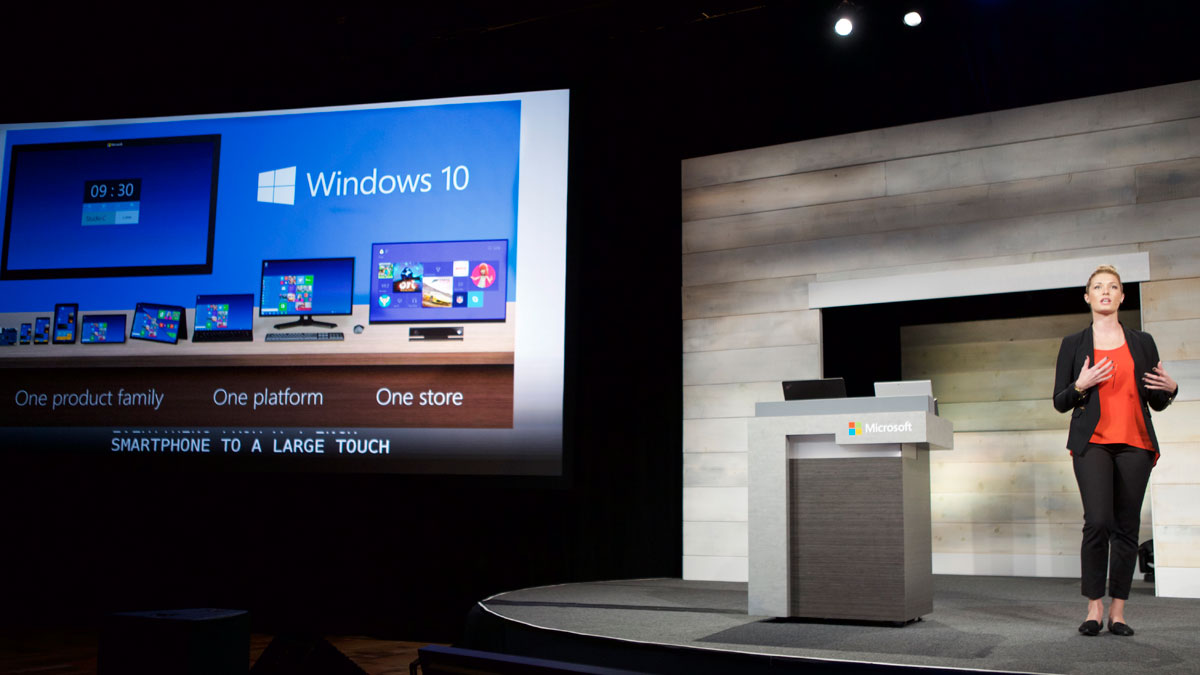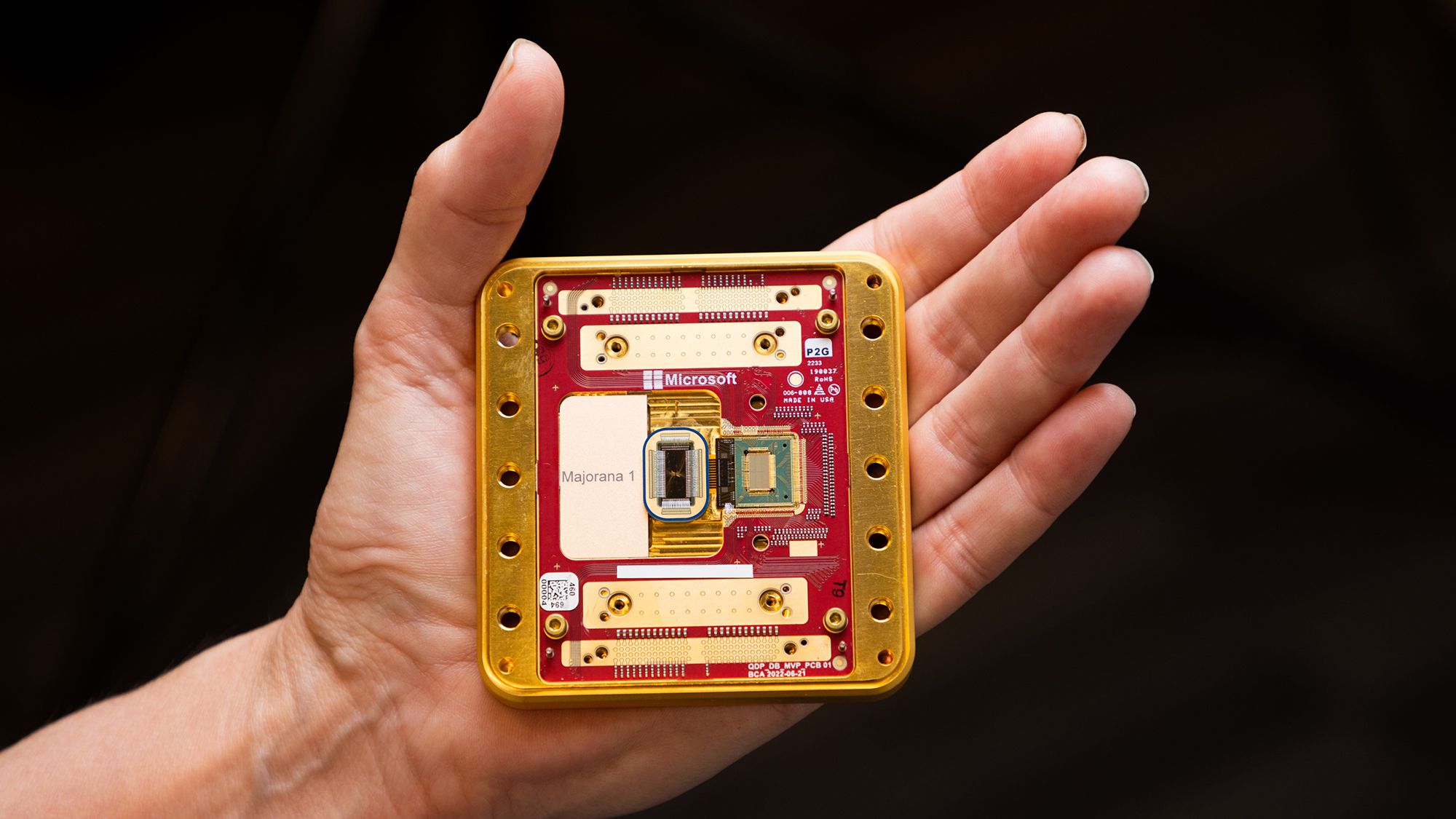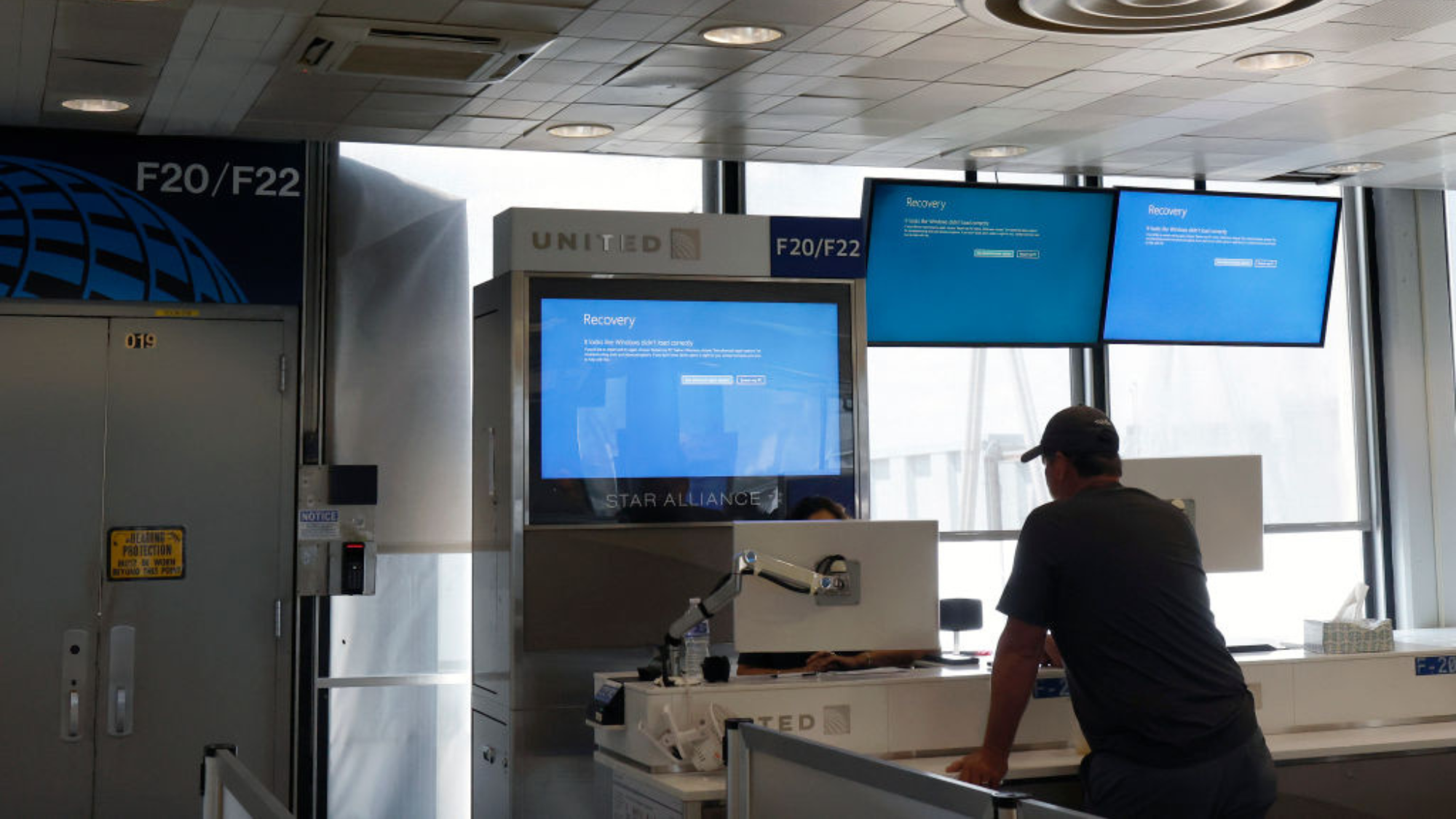Microsoft pays $10,000 for unwanted Windows 10 update
Californian business woman sues after automatic upgrade leaves her computer out of action for several days

A free daily email with the biggest news stories of the day – and the best features from TheWeek.com
You are now subscribed
Your newsletter sign-up was successful
Microsoft has agreed to pay $10,000 (£7,500) to a Windows user after its latest operating system left her machine unusable for several days.
Teri Goldstein, a Californian business owner, sued the company after Windows 10 tried and failed to automatically download itself onto her PC, rendering the computer useless and compromising her business.
She said she had "never heard of Windows 10" nor given anyone or anything permission for the upgrade, reports the Daily Telegraph.
The Week
Escape your echo chamber. Get the facts behind the news, plus analysis from multiple perspectives.

Sign up for The Week's Free Newsletters
From our morning news briefing to a weekly Good News Newsletter, get the best of The Week delivered directly to your inbox.
From our morning news briefing to a weekly Good News Newsletter, get the best of The Week delivered directly to your inbox.
Microsoft agreed the payment to cover the cost of lost earnings and a new computer.
While in the grand scheme of things, the story and pay-out are small, it's indicative of the larger criticism levelled at Microsoft for some time now – that it is nagging and sneakily tricking users into Windows 10 updates they may not want.
Many users have complained about what they say is the company's "aggressive" strategy to get people to upgrade, says The Verge.
Windows 10 became a "recommended download" last October, meaning those with automatic updates enabled found themselves unwittingly downloading it.
A free daily email with the biggest news stories of the day – and the best features from TheWeek.com
Microsoft has also been strongly criticised for its use of pop-up boxes – in one, users thought they were selecting to reject the OS but instead began the download, while another offered two options, both of them to upgrade.
The BBC adds that in February, Microsoft bundled Windows 10 into a security upgrade that users had to opt out of manually.
Many users do not want to upgrade because Windows 10 cannot run on their system, it may invalidate key software or because of concerns over the operating system's tracking and data-mining features, says the broadcaster.
"Many users feel that Windows 10 is being forced on them," agrees Alphr, which says the company has "been a bit too heavy-handed".
-
 6 exquisite homes with vast acreage
6 exquisite homes with vast acreageFeature Featuring an off-the-grid contemporary home in New Mexico and lakefront farmhouse in Massachusetts
-
 Film reviews: ‘Wuthering Heights,’ ‘Good Luck, Have Fun, Don’t Die,’ and ‘Sirat’
Film reviews: ‘Wuthering Heights,’ ‘Good Luck, Have Fun, Don’t Die,’ and ‘Sirat’Feature An inconvenient love torments a would-be couple, a gonzo time traveler seeks to save humanity from AI, and a father’s desperate search goes deeply sideways
-
 Political cartoons for February 16
Political cartoons for February 16Cartoons Monday’s political cartoons include President's Day, a valentine from the Epstein files, and more
-
 Why 2025 was a pivotal year for AI
Why 2025 was a pivotal year for AITalking Point The ‘hype’ and ‘hopes’ around artificial intelligence are ‘like nothing the world has seen before’
-
 Microsoft pursues digital intelligence ‘aligned to human values’ in shift from OpenAI
Microsoft pursues digital intelligence ‘aligned to human values’ in shift from OpenAIUNDER THE RADAR The iconic tech giant is jumping into the AI game with a bold new initiative designed to place people first in the search for digital intelligence
-
 How the online world relies on AWS cloud servers
How the online world relies on AWS cloud serversThe Explainer Chaos caused by Monday’s online outage shows that ‘when AWS sneezes, half the internet catches the flu’
-
 Microsoft unveils quantum computing breakthrough
Microsoft unveils quantum computing breakthroughSpeed Read Researchers say this advance could lead to faster and more powerful computers
-
 Microsoft's Three Mile Island deal: How Big Tech is snatching up nuclear power
Microsoft's Three Mile Island deal: How Big Tech is snatching up nuclear powerIn the Spotlight The company paid for access to all the power made by the previously defunct nuclear plant
-
 Video games to play this fall, from 'Call of Duty: Black Ops 6' to 'Assassin's Creed Shadows'
Video games to play this fall, from 'Call of Duty: Black Ops 6' to 'Assassin's Creed Shadows'The Week Recommends 'Assassin's Creed' goes to feudal Japan, and a remaster of horror classic 'Silent Hill 2' drops
-
 CrowdStrike: the IT update that wrought global chaos
CrowdStrike: the IT update that wrought global chaosTalking Point 'Catastrophic' consequences of software outages made apparent by last week's events
-
 Why is Microsoft breaking up Teams and Office?
Why is Microsoft breaking up Teams and Office?Today's Big Question The company had previously divided the software in Europe, but will now make this change globally